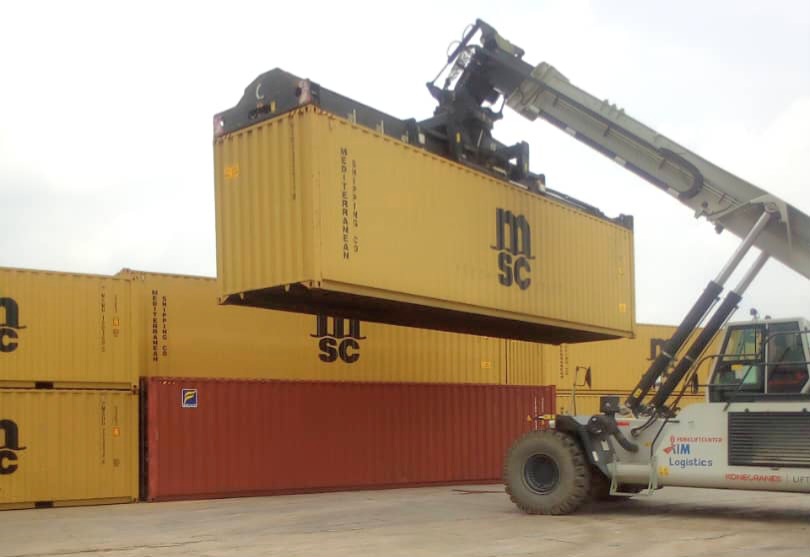Despite claims by the Nigerian Ports Authority (NPA) and promoters of external export processing terminals (EPTs) that the facilities will reduce cost of exportation and promote export business, exporters have criticised creation of external EPTs saying they will lead to more cost and make the budding intermodal system of transportation around the Apapa seaport useless.
The NPA approved operational licence for five EPTs recently, enthusing that the facilities would ease export processes and reduce cost of exportation, but these EPTs are located many kilometres outside the seaport.
However, speaking with The Economy, exporters said citing of the EPTs outside the seaports have enormous disadvantages than the benefits.
Mr Stephen Usih, Head of Export Sales and Logistics, Rubber Estates Nigeria Limited (Michelin), said for export processing terminal to be of benefit to exporters, they have to be located in the port.
He said: “Export processing terminals have to be an integral part of the port. If you have them outside the port, exporters using them will have to pay them and also pay terminal operators in the port for handling charges, which is about N50,000 per container. With this, the external EPT is creating additional cost.
“Although the NPA said the terminal operators will not charge us again, we are yet to see how that will happen because we still have to use the handling services of the terminal operators in the port.
“Also, there will be delay in the process. Customs officers are not at the external export processing terminals. They said they have no approval from the headquarters to be at the EPTs.
“Access to the port should be flexible, as in other ports in the world. If we have to transit into the EPTs, it simply means we cannot use the rail system again. That’s makes the rail project useless. We also will stop using the services of the barges. Now we are using barges and the railways syatem to bring in our produce into the port. If we have to first go to the external EPTs, we will not be using the rail and the waterways, so the intermodal system of transport to Apapa Port will be cancelled and the traffic gridlock in Apapa will return.”
At press briefing recently, the Managing Director of NPA, Mohammed Bello-Koko said the EPTs would reduce cost of exportation. This he said made him to approve licence for EPTs.
“The EPTs will reduce the cost to the exporters, reduce the time that it takes to export these goods out and then make the process faster and seamless, actually,” Bello-Koko said.
However, this development did not go down well with exporters.
“I think the NPA has interest in this and are making it to happen so fast. Already, the ETO system we have is doing well, so why this new move to upturn a system that is already working?,” Usih asked.
He however noted that the external ETPs could be useful to exporters who do not have facilities for sorting and stuffing and therefore urged the NPA to make the external ETPs optional so that only those who need their services can use them.
Speaking in the same vein, a cocoa exporter, Mr Dayo Adeleke said the port terminal is not made for stuffing, but for cargo handling.
“This export process terminal is made for exporters stuffing inside the terminal. It should only be made for exporters who are bringing their exports for stuffing. Exporters who can’t stuff in their premises can bring it to the processing terminal,” Adeleke said.


